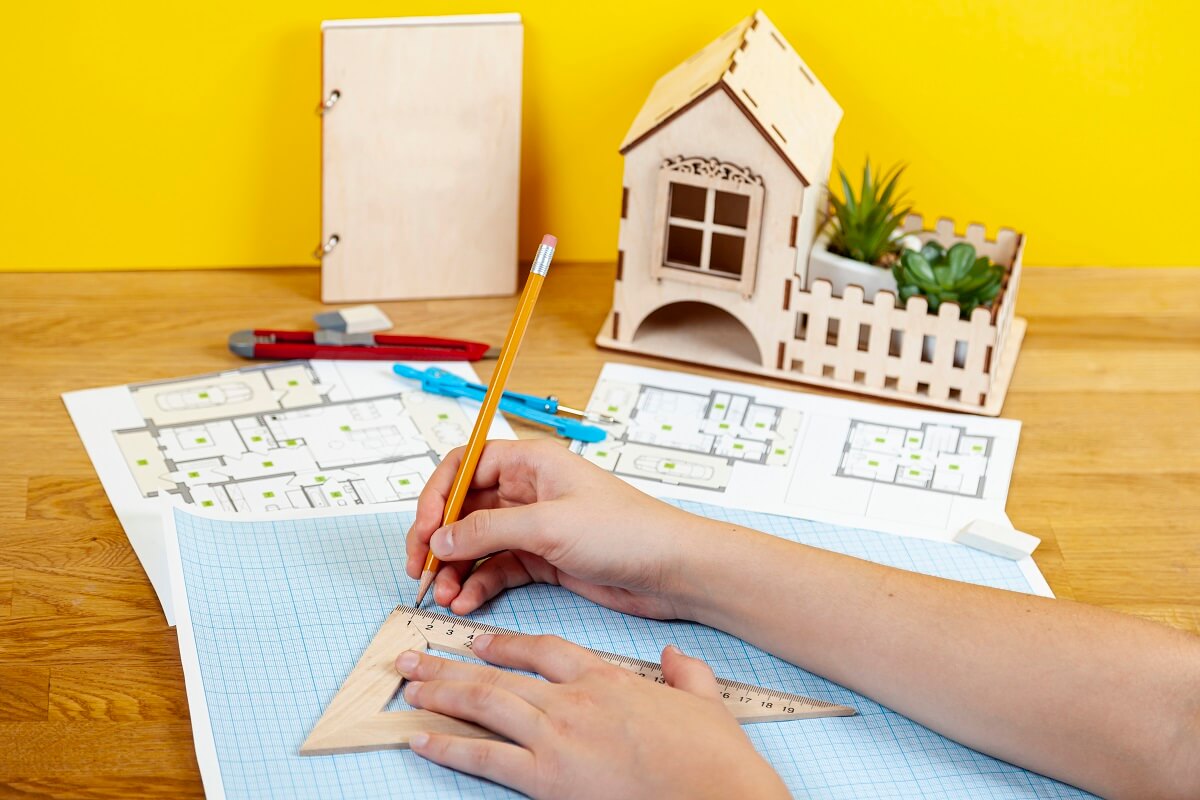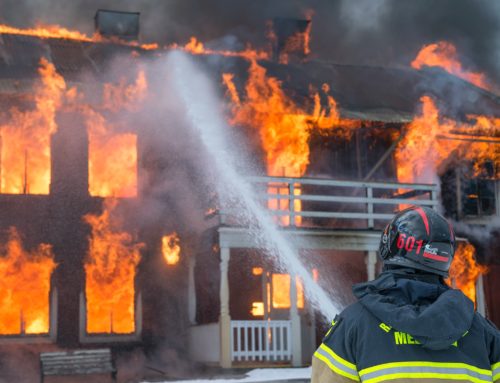At last, it’s the day of the closing process. It’s the most exciting part of your home buying process. You have everything prepared to transfer the home to your ownership — indeed, it wasn’t easy, but it all pays off when you know that the dream property is one signature away from becoming yours.
At this step, however, the keys aren’t with you still. There are still several important things you should take care of and complete. So, it would be wise to do your research and learn all the facts you need to close the deal. Knowing what to anticipate can make the closing deal go effortlessly.
Here we go through ten of the most commonly asked questions and the ten most commonly anticipated situations between the real estate agent, the mortgage lender, and the buyer and seller in the closing process.
1. How long does it take to close on a house?
You can anticipate closing on a house to take 30 – 50 days, though the closing day itself generally takes no longer than a few hours.
However, the entire process of closing on a house is a multistep process, so typically, it takes some time to be completed. So, your experience may differ depending on the type of loan you choose.
Each home buyer is unique and must find financial support that suits their situation. As a result, there are different types of home loans, and each one comes with its advantages and disadvantages.
According to the Ellie Mae Origination Insight Report, it takes about 46 days to close a loan as of October 2021. Still, based on this report, each loan type carries its own time to close.
Conventional Loans
The aforementioned Ellie Mae Report claims that conventional loans took a normal of 45 days to close. Conventional loans tend to close hastily since they follow a traditional path from operations to end.
FHA Loans
The Ellie Mae Report shows that FHA (Federal Housing Administration) loans took approx. 51 days to close in August 2021.
FHA loans operate on an analogous timeline to conventional loans. Still, they may need some additional time for some detailing in the process. FHA loans require appraisals done by FHA-approved evaluators, for instance.
VA Loans
As mentioned in the Ellie Mae Report, VA (Veterans Affairs) loans took about 52 days for a house closing process during October 2021.
VA loans are likely the longest in general. This is due to their stricter underwriting conditions, and only some lenders perform financing for VA loans. They need direct countersign or endorsement from the VA to do so.
2. What can go wrong at closing?
A few things can put the final walkthrough of closing in danger. We have listed the most common ones:
- Home Inspection shows damage. The lender will do a home inspection for pests on your property, which will be done at your expense. The initial costs are about $100, and the whole process is done quickly. However, if they find significant damage on your carpets or furniture by ants and other insects, this might cause a real issue and you will be asked to cover the repair costs.
- The lender appraisal turns out too low. When selling your home, an authorized party will have your property appraised for taxation purposes during the process to get financing or in the closing process. This appraisal fee is at your expense. If the appraisal is too low, you will have to lower the purchase price, or the seller can pay cash for the difference. If the seller disagrees with the appraised value, they can always go to third-party appraisal officials and get a second opinion.
- The financing falls through. Buyers usually don’t make offers on properties without getting a preapproval first. Sellers should only accept such offers to ensure that the closing disclosure is clear and everything runs smoothly. However, sometimes buyers fall through with the financing, which might hinder the real estate closing. To avoid this, always discuss with your attorney to review and confirm your closing disclosure.
3. What to do if the seller keeps delaying closing?
Your first action is to check your options if you see the seller stalling. Address your real estate agent and advocate to create an addendum to the guarantee that allows a lengthening for the closing if they demand additional time to get their personal property out of the house.
You can otherwise keep the deadline date identical but allow the seller to lease the property to you temporarily after closing. Be firm about charging the seller rent if you choose this option, so they have a reason to abandon the property timely.
If the seller’s stalling seems suspicious to you, you can always cancel your contract and look for a new property to buy.
4. Who is liable for mistakes at the closing table?
The purchaser and seller are subsequently accountable for the veracity of the agreement statement. The purchaser and seller are the only two sides confidentially concerned at every end of the sale. The seller is conscious of the liens attached to the property and the quantity of any duties or assessments owed.
5. Can a home seller delay closing?
Yes, a seller can delay the closing date. However, more frequently than not, it’s either the buyer or other circumstances that cause holdups in the closing, like issues with the loan approbation or title search, problems established in the property during the closing process, or an appraisement that’s lower than the selling price.
On the other hand, when there are holdups in the house closing process by the seller, it could be for numerous reasons, from simple issues with the seller’s work agenda to a more serious problem of the seller changing their mind or not wanting to follow through with the purchase price.
The buyer’s recourse will finally depend on the concrete reason for the closing hold up, so the foremost measure is to find out exactly what that problem is and talk it through with the closing agent and the legal owner of the property.
6. Can the seller back out if the closing is delayed?
Both parties have the right to back out of the home closing process if the closing date is delayed for some reason. In the instance that the buyer misses the closing date of the purchase contract or doesn’t make a payment in a timely manner. In that case, the seller has the right to back out of the purchase agreement at any point and continue the selling of the house with another interested party.
7. Do they rerun your credit at closing?
Yes. Usually, the lender or the lender’s representative will inspect the buyer’s credit score once at the beginning of the approval process and once more just before the closing.
8. Do I get my appraisal money back at closing?
Unfortunately, the seller does not get the appraisal fee back. These are part of the non-refundable closing costs for a very good reason. Namely, this payment is for a rendered service that cannot be taken back, just as any other service type.
The appraiser has finished with the appraising, and the outcome is not considered part of the payment agreement. Otherwise, it would be unfair to the person doing these appraisals as they will not get any money for their work. Also, the appraiser is not responsible for the work results to match the sales price or the desired price of the seller and the buyer.
9. How can I speed up closing on a house?
There are several things you can do to speed up the process of closing on a house.
- Work with experienced real estate agents.
- Get your funding preapproved.
- Get your real estate agent and title agent to prepare all the documents beforehand, so you come prepared and don’t waste any more time on bank statements and similar documentation.
- Respond to meetings and requirements quickly. Regardless of how effectively you try to get all your documents in order, chances are, there will always be something that is missing. Prepare for such an outcome and always meet deadlines for any documents needed during the final walkthrough.
10. Who pays more closing costs, buyer or seller?
It is only fair that the buyer and seller pay closing costs equally. However, it is usually the case that the buyer pays a more considerable amount of the costs, and the seller will typically cover the local taxes and municipal fees.
Closing Thoughts
Managing the closing of a home can be overwhelming regardless of whether you are the buyer or the seller, especially if this is your first time doing so. Lenders require loan documents, appraisals inspect what seems to be every detail of your property, closing fees, and other expenses to manage, and then you have to pass good on the credit check. All these can be stressful, but nothing matches the feeling of finally closing a deal and getting your dream home.










 Highest Cash Offer is a real estate solutions company. Our team of experts specialize in assisting homeowners with a wide variety of solutions to any real estate problem. Whether we buy your house for cash or not, our goal is to help you get the desired outcome you deserve.
Highest Cash Offer is a real estate solutions company. Our team of experts specialize in assisting homeowners with a wide variety of solutions to any real estate problem. Whether we buy your house for cash or not, our goal is to help you get the desired outcome you deserve.